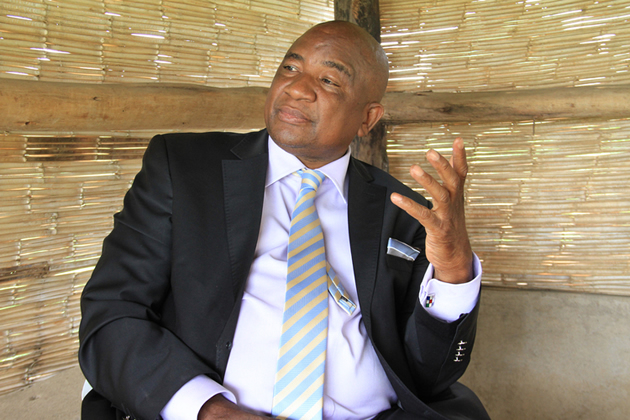‘Economic diplomacy and re-engagement our priority’

THE INTERVIEW: Lovemore Ranga Mataire
Lieutenant-General Sibusiso Busi Moyo (Retired) is Zimbabwe’s Foreign Affairs and International Trade Minister. The three-star general became the face of the military intervention when he appeared on national television in the early hours of November 15, 2017 to announce news that would eventually lead to former President Cde Robert Mugabe stepping down. Since his appointment to Cabinet, Moyo has become the public face of the new establishment, meeting foreign dignitaries and accompanying President Mnangagwa on regional and continental appraisal visits. Our Senior Writer Lovemore Ranga Mataire (LRM) recently caught up with Minister Sibusiso Busi Moyo (SBM) and spoke to him on various issues including the Government’s re-engagement efforts.
LRM: Minister, can you briefly highlight what have been your priority areas since your appointment as Minister of Foreign Affairs and International Trade?
SBM: Well, I have always indicated that our priority is on economic diplomacy and re-engagement, which basically means making outreach visits within the SADC bloc then the pan-African area. The idea is to re-engage, reassure our partners and deepen cooperation with those who have stood by us during difficult times.
LRM: You have met several foreign envoys and visited regional countries including attending the Davos meeting in Switzerland. What have been the concerns of those you engaged with?
SBM: Their concerns have been varied. Others were concerned about how we are going to deal with the land issue, while others were concerned about the impending elections. But generally, the responses from our engagement efforts have been excellent. We are getting warm reception from all our regional colleagues who are cooperating with Zimbabwe to get out of its current challenges.
Most of the issues that were raised by some of those we engaged are issues that are already behind us, like the land issue. Now we are looking forward to cooperation and making sure that the land is productive.
Some were also concerned with what we are going to do in terms of respecting the bilateral arrangements we have with them and we assured them that we are going to conduct ourselves in terms of the law. We are going to compensate former farmers according to the law, but that is a process which is dependent on the availability of funds.
LRM: What steps have been taken by the new establishment regarding the removal of economic sanctions imposed by the European Union and the United States?
SBM: We are aware of that issue and we are aware that the sanctions are illegal because the issue was primarily a bilateral dispute between Zimbabwe and Britain. Britain turned the issue into a regional issue and lobbied other countries in the EU and also the United States. This is why we are focusing more on engaging with England; we need to normalise our relations with our erstwhile colonisers.
We have told them (the British) that the country is rebranding itself, but they are arguing that the sanctions are isolated and targeted at certain individuals.
We have highlighted to them that as long as one of us is under sanctions, that inhibits the process of rebranding the country as an equal partner in the community of nations. It is not an easy process but we are hopeful that we will eventually find common ground. In regard to the US, it’s a far much more arduous process that involves a lot of parties but we have started that journey.
LRM: Zimbabwe is known for its Look East Policy consummated and popularised by former President Mugabe. Has there been any changes or remodelling of the policy by the new dispensation?
SBM: You must remember the circumstances that led to the adoption of such a process. It was at the height of the Land Reform Programme when most countries in the European bloc and the United States literally withdrew from any meaningful economic engagement with us. China, Malaysia and other countries in the East never changed their relations with us. So in essence the Look East Policy has not been abandoned. We seek to deepen those relations, especially with our friends and those who have stood by us in difficult times. Those who had a different perspective with us — we seek to re-engage and normalise relations.
LRM: As we conclude this conversation, I am sure many Zimbabweans would want to know the country’s prospects in rejoining the Commonwealth.
SBM: I am sure you are aware of how Zimbabwe came out of the Commonwealth. At the Abuja summit, there was a decision taken to maintain Zimbabwe’s suspension indefinitely and this angered supporters of the ruling Zanu-PF party who at their conference demanded that the country leave the Commonwealth.
The people chose to get their land back than continue being club members. But the reasons that led us to come out of the Commonwealth are no longer there or have since been overtaken by events. I see no impediments in us rejoining the Commonwealth, but there is need for consultation with the same constituency that advocated that we leave. We need to consult all the country’s 10 provinces before making a decision.








Comments